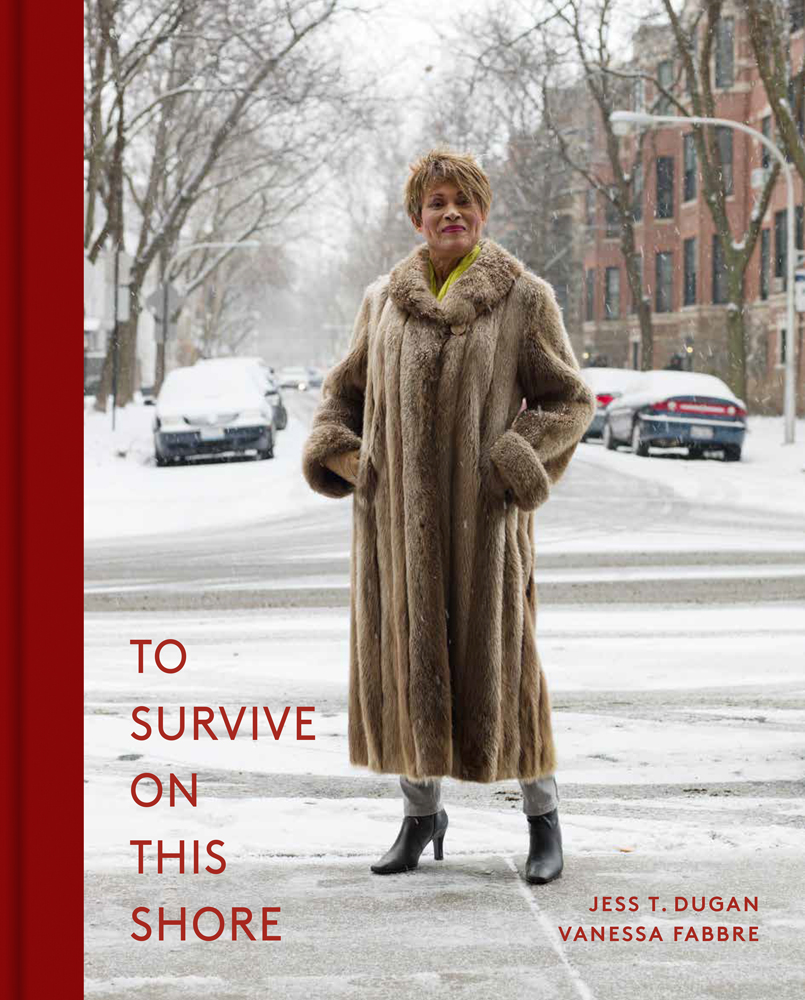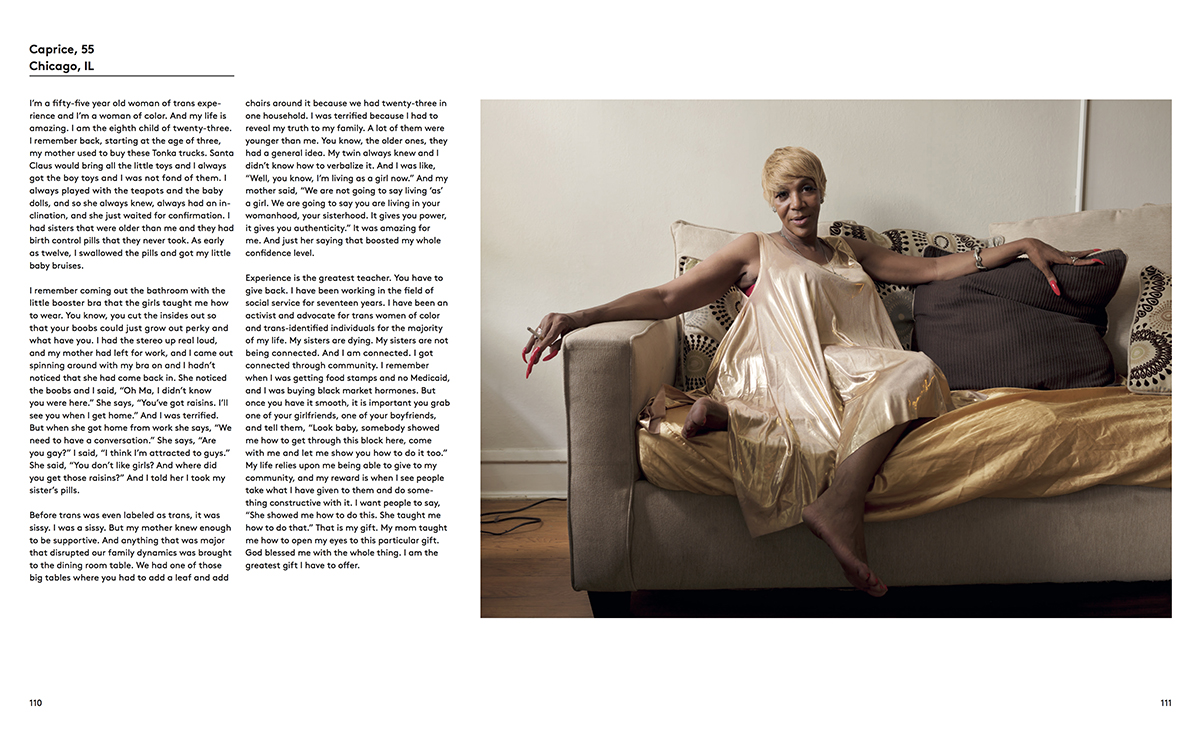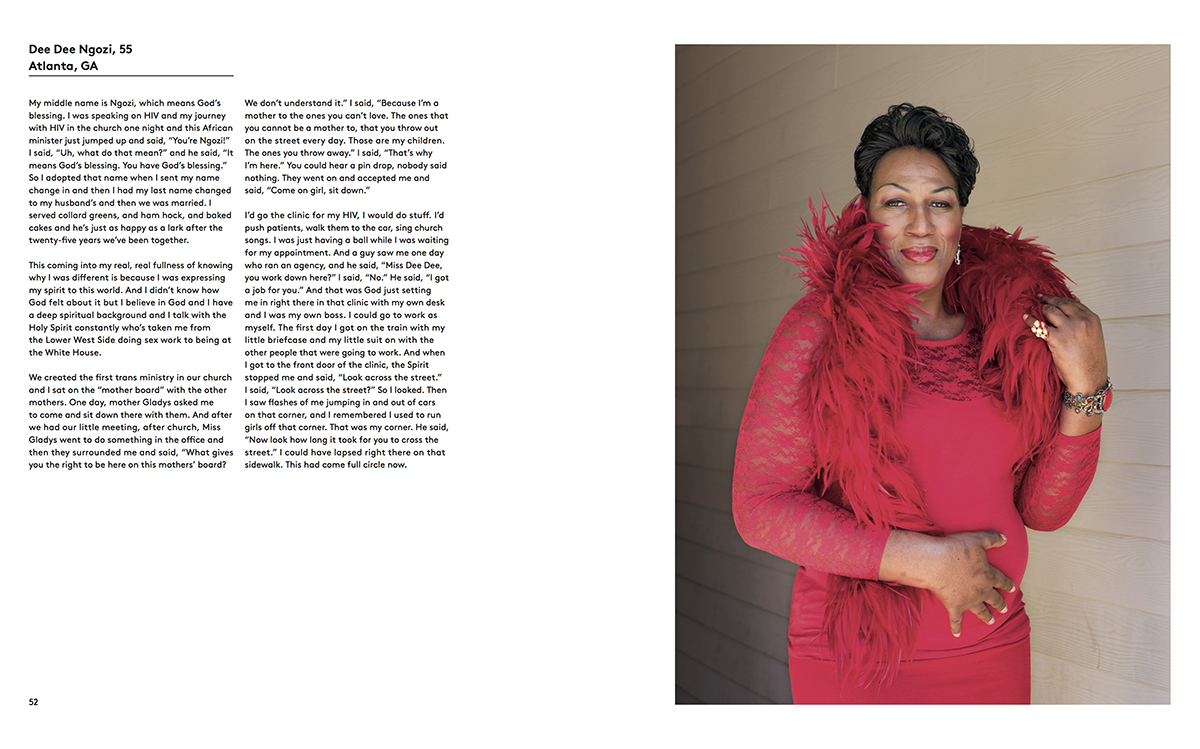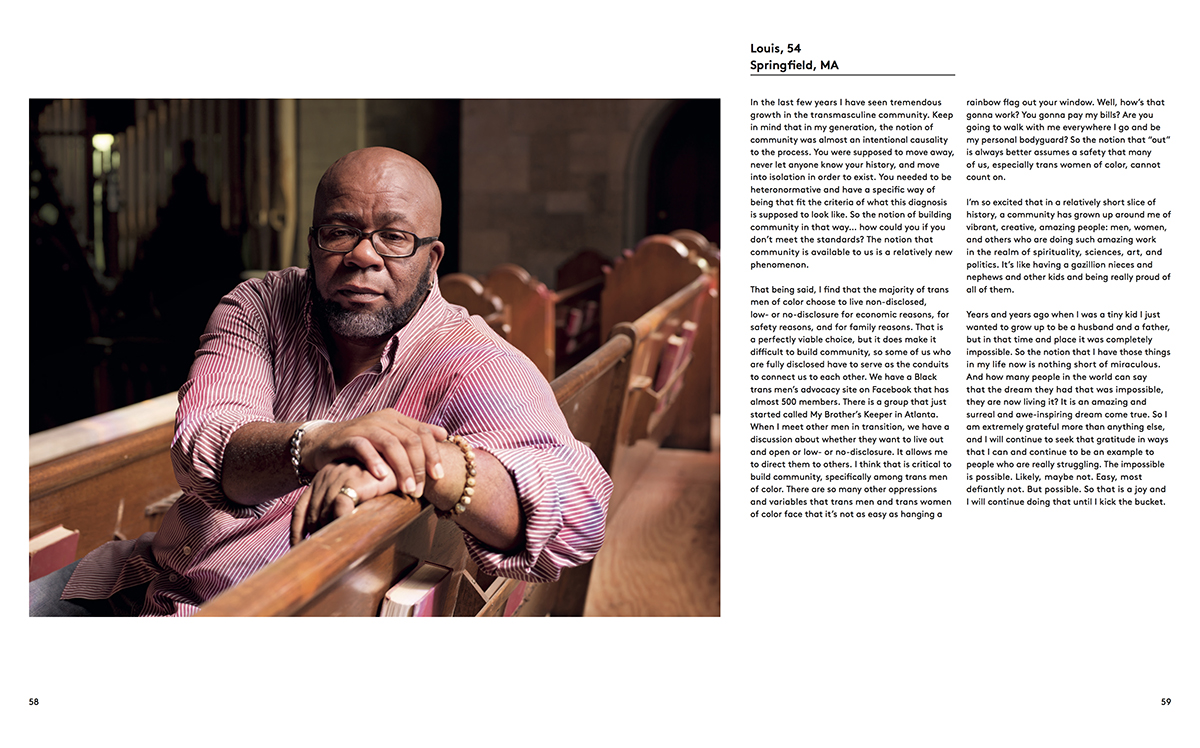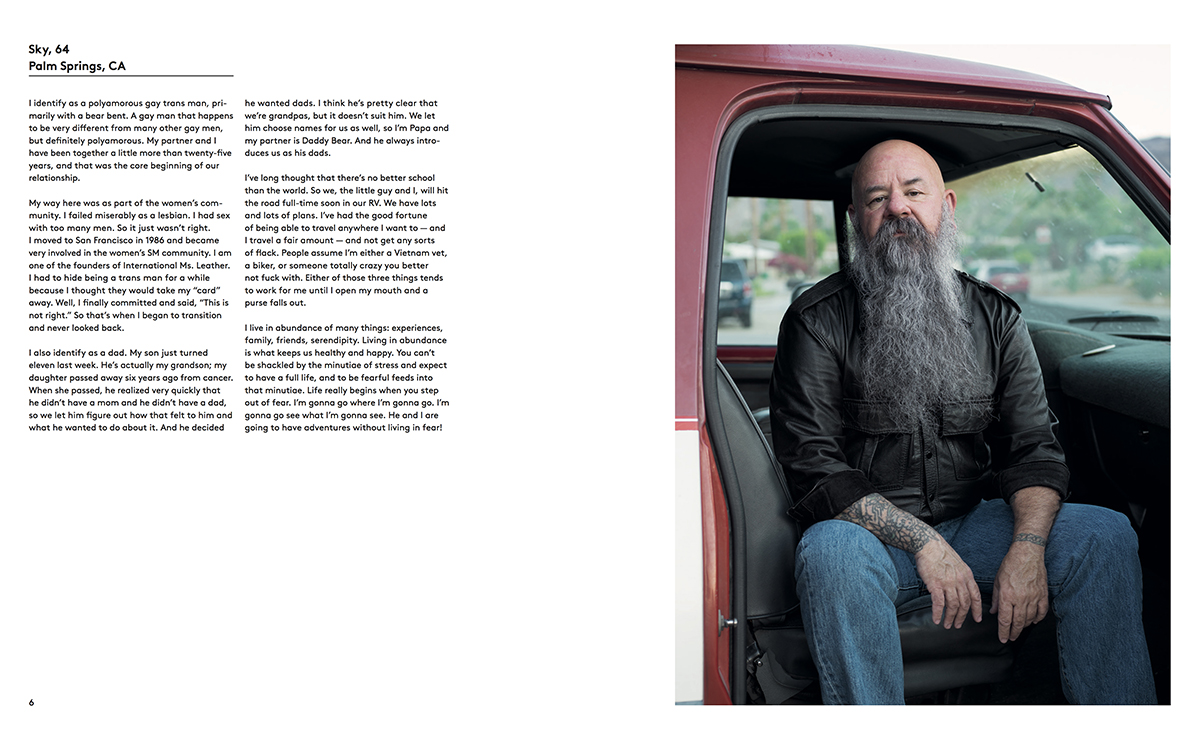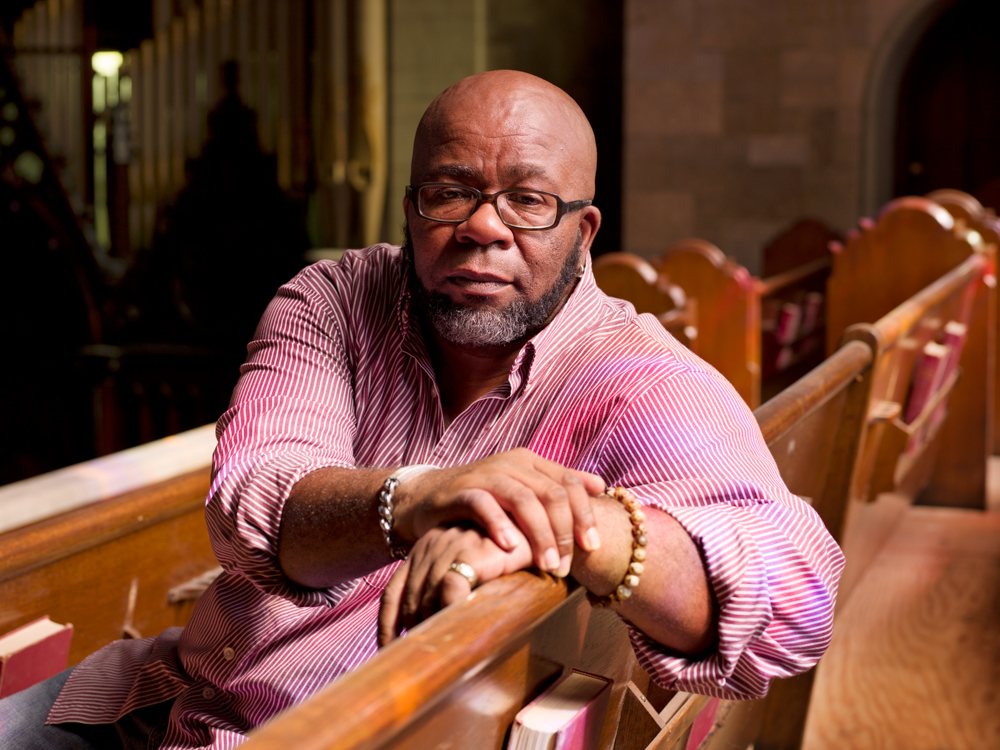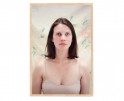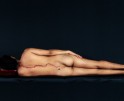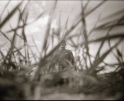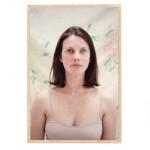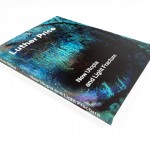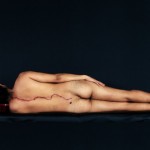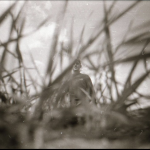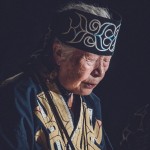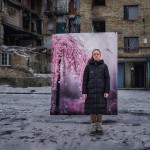Jess Dugan: To Survive on this Shore
“I’m a senior citizen. I made it to seventy and a lot of them won’t make it, they won’t make it at all. Because most of them die from drugs, from sexual disease or they’re murdered. They ask me questions like, “Well, Momma Gloria, how did you get through?” I say, “I got through with love from my family and the grace of God.” That’s how I got through. You have to have some stability and you have to have some kind of class, some charm about yourself. I never was in the closet. The only time I was in the closet was to go in there and pick out a dress and come out of the closet and put it on.” – Gloria, 70, Chicago, IL, 2016
It gives me so much pleasure to celebrate Jess Dugan’s newest photographic project, book, and exhibition, To Survive on This Shore: Photographs and Interviews with Transgender and Gender Nonconforming Older Adults. Throughout her career, Jess has created an important photographic legacy of documenting communities with sensitivity and deep consideration. Her work reminds us of our humanity and the importance of being “seen”, moving the spotlight onto those who have felt marginalized and underrepresented and presenting them with the dignity they deserve. The project was created in collaboration with social worker Vanessa Fabbre and it is a significant documentation of an aging population of gender trail blazers, who against all odds have lived an authentic life. The project took Jess and Vanessa over five years of travel across the United States to interview transgender and gender nonconforming older adults and the result reveals the complexities of life experiences that cannot be stereotyped.
Jess and Vanessa were “seeking subjects whose lived experiences exist within the complex intersections of gender identity, age, race, ethnicity, sexuality, socioeconomic class, and geographic location, they traveled from coast to coast, to big cities and small towns, documenting the life stories of this important but largely underrepresented group of older adults. The featured individuals share a wide variety of life narratives spanning the last ninety years, offering an important historical record of transgender experience and activism in the United States. The resulting portraits and narratives offer a nuanced view into the struggles and joys of growing older as a transgender person and offer a poignant reflection on what it means to live authentically despite seemingly insurmountable odds”.
The result of this dedicated documentation is a book by Kerhrer Verlag, To Survive on This Shore and the inaugural solo exhibition and official US book release at projects+gallery in Saint Louis, MO, which runs from today, September 6 through October 10, 2018 with and opening reception on Thursday, September 13, 6-9 p.m.
Jess T. Dugan is an artist whose work explores issues of identity, gender, sexuality, and community. She holds a BFA in Photography from the Massachusetts College of Art and Design, a Master of Liberal Arts in Museum Studies from Harvard University, and an MFA in Photography from Columbia College Chicago. Her work
has been widely exhibited at venues including the Smithsonian National Portrait Gallery, Washington, D.C.; the Museum of Fine Arts, Boston; the San Diego Museum of Art; the Aperture Foundation, New York; the Transformer Station, Cleveland; and the Museum of Contemporary Photography, Chicago. Her first monograph, Every Breath We Drew, was published in 2015 by Daylight Books. The same year, she was the recipient of a Pollock-Krasner Foundation Grant and was selected by the White House as an LGBT artist Champion of Change. In 2018, she was an Artist-in-Residence at Light Work in Syracuse, NY. She is represented by the Catherine Edelman Gallery in Chicago, IL.
Vanessa Fabbre, PhD, LCSW, is an Assistant Professor at the Brown School at Washington University in St. Louis, where she is also Affiliate Faculty in Women, Gender and Sexuality Studies and a Faculty Scholar at the Institute for Public Health. She received her PhD from the School of Social Service Administration at the University of Chicago. Her research explores the conditions under which gender and sexual minorities age well and what this means in the context of social forces such as heteronormativity, heterosexism, and transphobia. She is also interested in critical perspectives on social work practice and interpretive methodology in the social sciences. She is actively involved in the Gerontological Society of America, the American Society on Aging, and the Society for Social Work and Research. Her work has been published in The Gerontologist, the Journal of Gerontology: Social Sciences, Social Work, the Journal of Gerontological Social Work, the Journal of Urban Health, and the Journal of Interpersonal Violence.
Karen Irvine is Deputy Director and Chief Curator of the Museum of Contemporary Photography (MoCP) at Columbia College Chicago. She has organized over fifty exhibitions of contemporary photography at the MoCP and other venues including the Hyde Park Art Center; the Rockford Art Museum; the Lishui International Photography Festival, China; the Daegu Photography Biennale, South Korea; and the New York Photo Festival. Irvine has contributed texts to many publications including FOAM, Art on Paper, and Contemporary magazines and monographs including Ann Lislegaard: Eyes Wide Open (The Royal Museum of Photography, Copenhagen), Paula McCartney: Non-flights of Fancy (Princeton Architectural Press), Barbara Probst: Exposures (Steidl), Christian Patterson: Redheaded Peckerwood (MACK), and Stefan Heyne: Speak to Me (Hatje Cantz), among others. She holds a BA in French and International Relations from Tufts University, Medford, MA; an MFA in Photography from FAMU, Prague, Czech Republic; and an MA in Art History from the University of Illinois at Chicago.
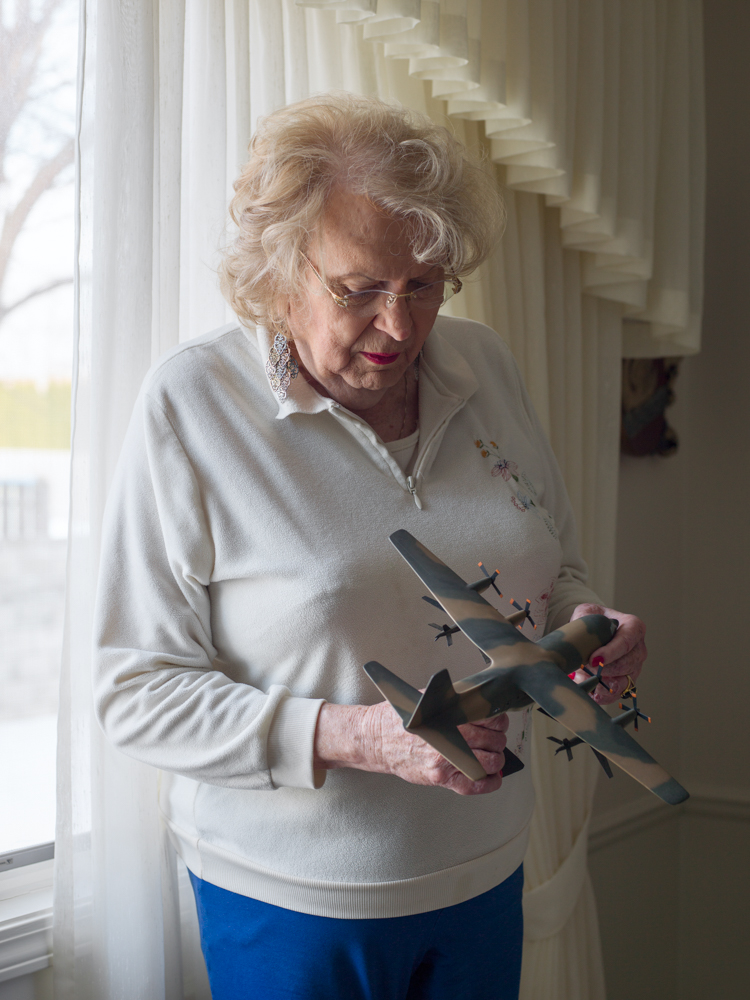
©Jess T. Dugan/Courtesy of the Catherine Edelman Gallery, Chicago, Bobbi, 83, Detroit, MI, 2014 “I think people talk in either/or terms, right? Before transition and after. But to me, it’s really development. I’m proud of both lives. I’m proud of both me’s, if you see what I’m saying. And I feel it has been a remarkable thing to have happened to a person. I’m grateful. You can’t just become a woman with a knife or a pill or anything like that. It takes a whole combination in a sequence, in a formation. You’ve got this time span, it’s a learning experience, it’s a little bit of everything.” – Bobbi
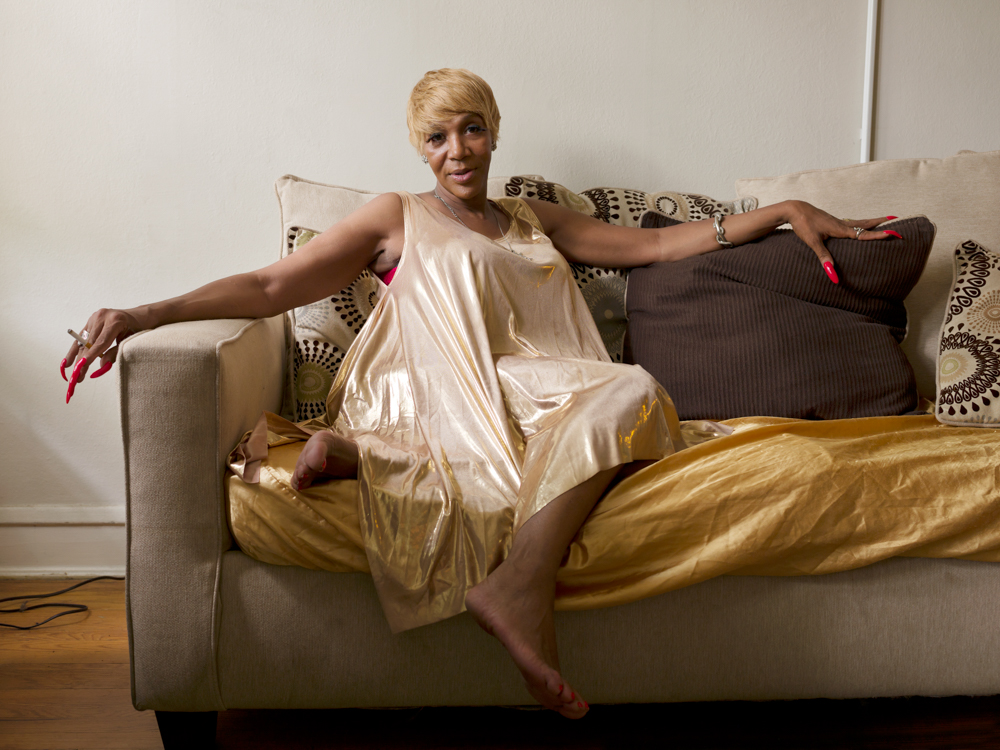
©Jess T. Dugan/Courtesy of the Catherine Edelman Gallery, Chicago, Caprice, 55, Chicago, IL, 2015 “I’m a fifty-five year old woman of trans experience and I’m a woman of color. And my life is amazing. I have been working in the field of social service for seventeen years. I have been an activist and advocate for trans women of color and trans-identified individuals for the majority of my life. My life relies upon me being able to give to my community, and my reward is when I see people take what I have given to them and do something constructive with it. I want people to say, “She showed me how to do this. She taught me how to do that.” That is my gift. My mom taught me how to open my eyes to this particular gift. God blessed me with the whole thing. I am the greatest gift I have to offer.” – Caprice
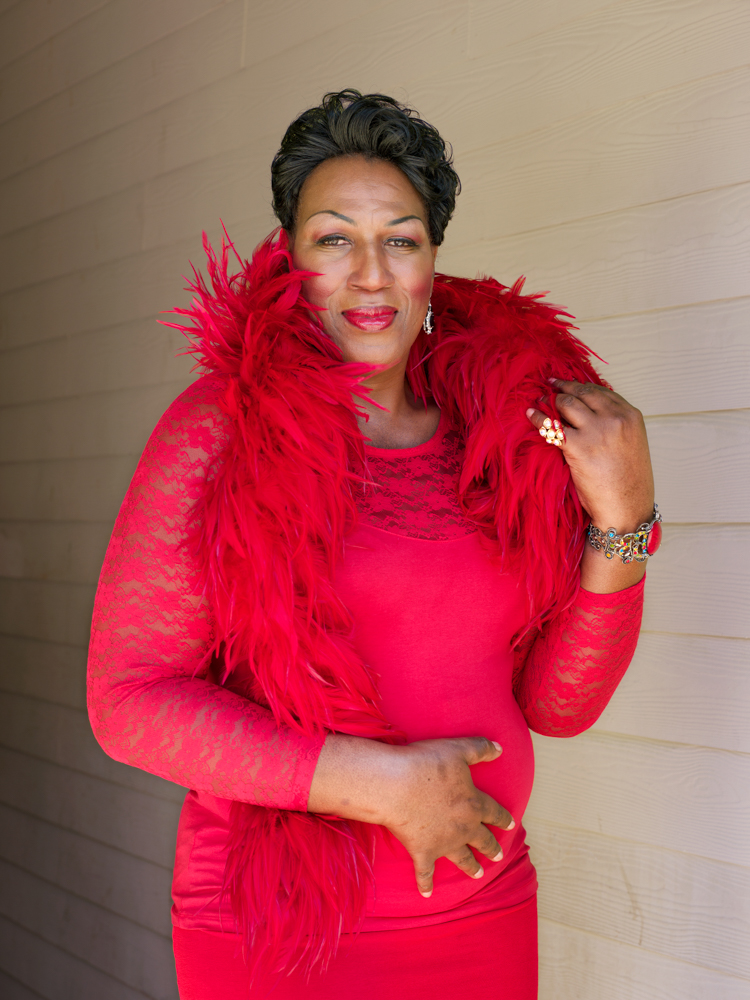
©©Jess T. Dugan/Courtesy of the Catherine Edelman Gallery, Chicago, Dee Dee Ngozi, 55, Atlanta, GA, 2016 “This coming into my real, real fullness of knowing why I was different is because I was expressing my spirit to this world. And I didn’t know how God felt about it but I believe in God and I have a deep spiritual background and I talk with the Holy Spirit constantly who’s taken me from the Lower West Side doing sex work to being at the White House.” – Dee Dee
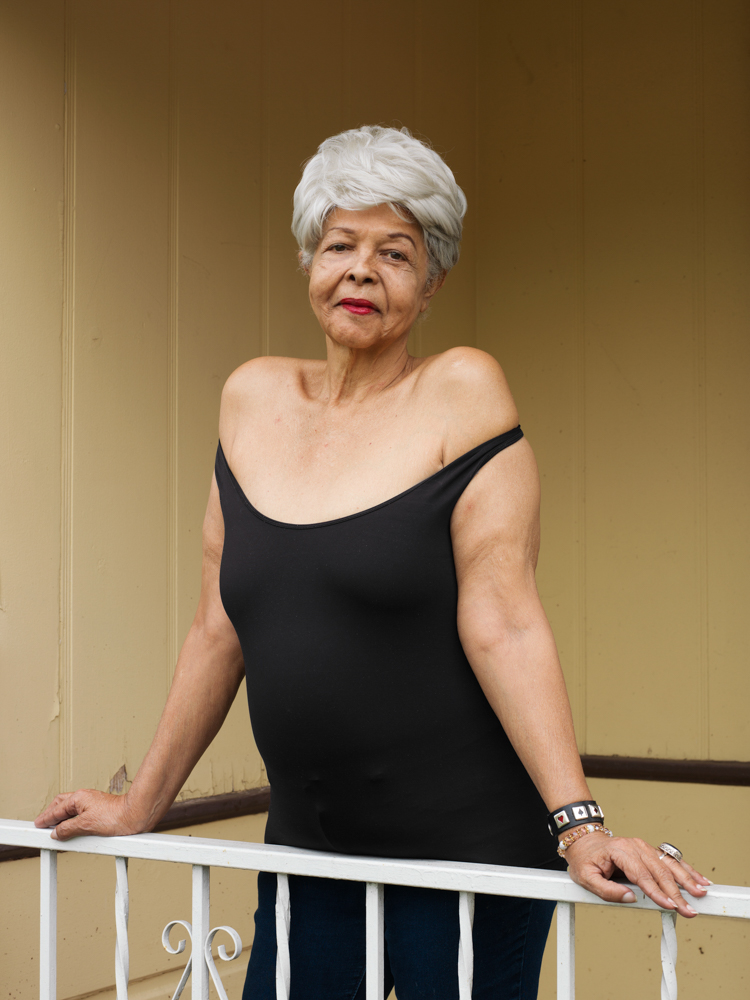
©Jess T. Dugan/Courtesy of the Catherine Edelman Gallery, Chicago, Duchess Milan, 69, Los Angeles, CA, 2017 “My mother said when you die, you stand there before the light, and you say, “Was I worthy of myself to know that I have liked me?” Okay? I like me. Okay? And I will tell the whole chorus, honey, “I like me.” I don’t hurt anybody, I don’t do anybody wrong, you know. I’ve dealt with everything I can, as much as I can. So just find that inside yourself and take time with that person. Faults, flaws, wishes, all of it, it doesn’t matter. We’re not going to get it all. None of us gets it all. Okay? But what we do have, we can polish. We can polish it, honey, till it blinds them.” – Duchess
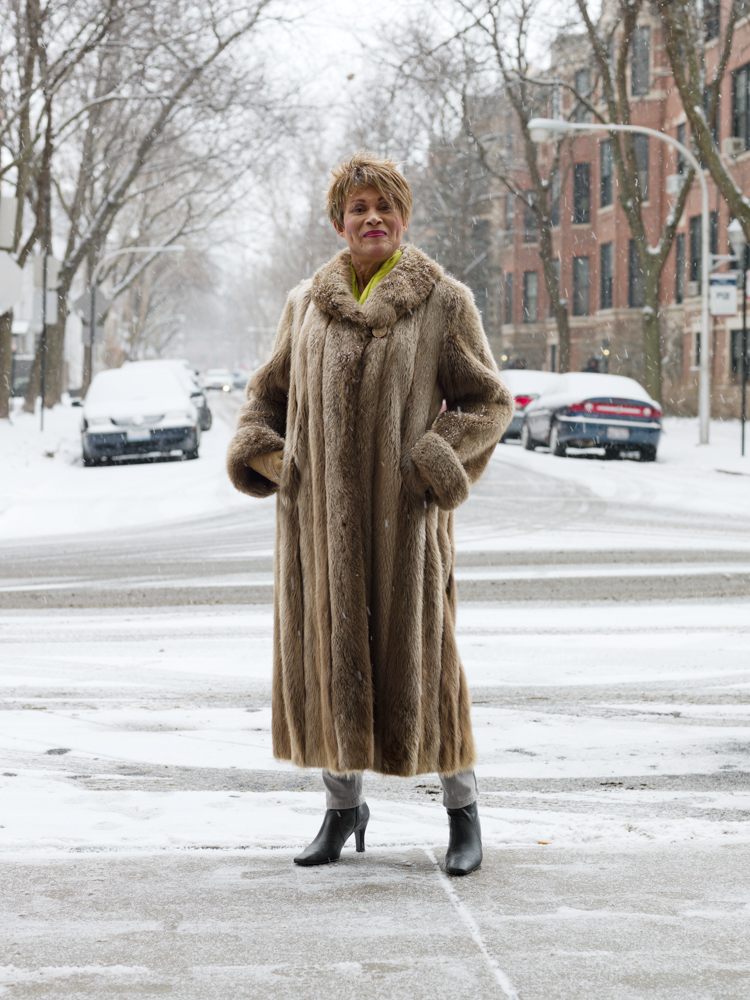
©Jess Dugan, Courtesy of the Catherine Edelman Gallery, Chicago, Gloria, 70, Chicago, IL, 2016, “I’m a senior citizen. I made it to seventy and a lot of them won’t make it, they won’t make it at all. Because most of them die from drugs, from sexual disease or they’re murdered. They ask me questions like, “Well, Momma Gloria, how did you get through?” I say, “I got through with love from my family and the grace of God.” That’s how I got through. You have to have some stability and you have to have some kind of class, some charm about yourself. I never was in the closet. The only time I was in the closet was to go in there and pick out a dress and come out of the closet and put it on.” – Gloria
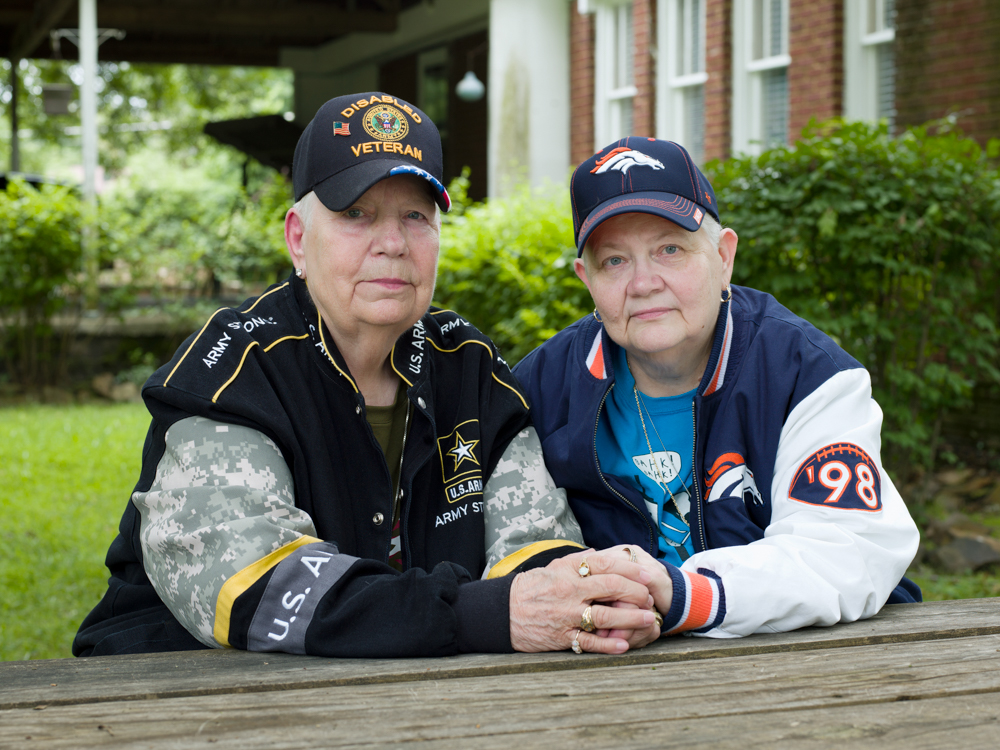
©Jess Dugan, Courtesy of the Catherine Edelman Gallery, Chicago, Hank, 76, and Samm, 67, North Little Rock, AR, 2015 It was a lot like in the olden days, you know, there were a lot of people around like me and people just expected us to become “unmarried aunts” or “fancy boys” and nobody ever confronted you with it. My father would say things like, “Oh, this one will never get married.” If I heard him say that today I would say, “Oh, he’s telling them I am gay.” Only I didn’t have those words for it back then. – Hank Hank and I have been together forty-four years. I found this one in Western Michigan. She was different from anybody I have ever met in my whole life and I knew that she would be in my life for the rest of my life. There was this immediate connection that would always be there. The way we are today, we started out that way. – Samm
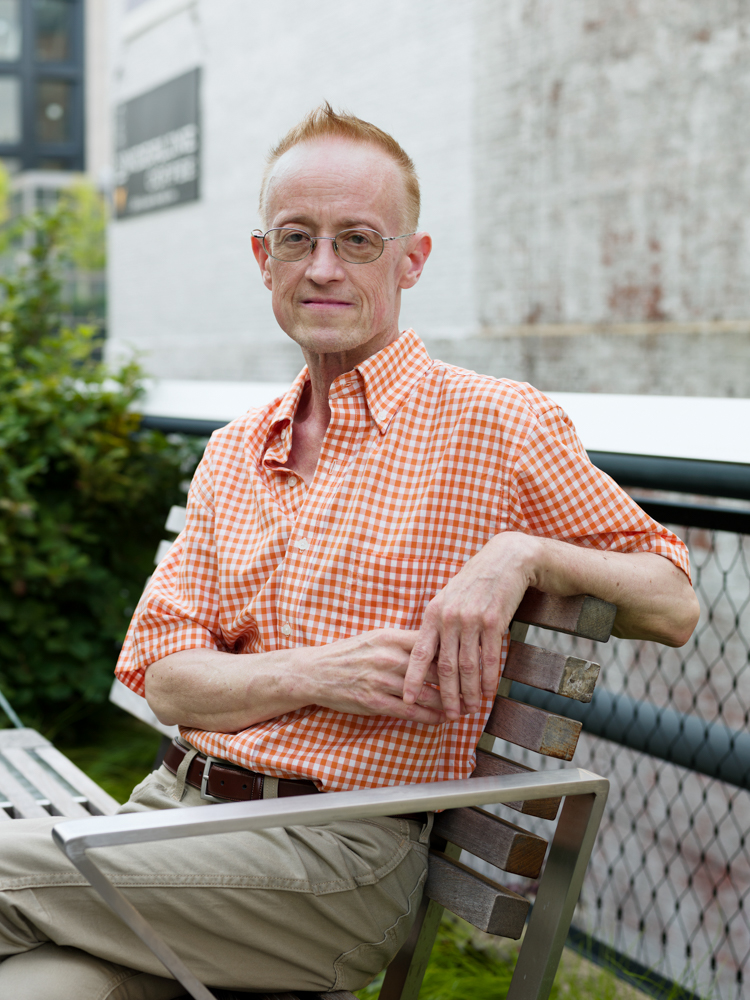
©Jess T. Dugan/Courtesy of the Catherine Edelman Gallery, Chicago, Jay, 59, New York, NY, 2015 I’m a pretty classic transgender man, as I see it, because from my earliest recollections as a tiny child I experienced myself as a boy in a girl’s body. I felt that some dreadful mistake had been made and I didn’t get the body I was supposed to. I prayed every night to God to make me wake up a boy the way I was supposed to be. – Jay
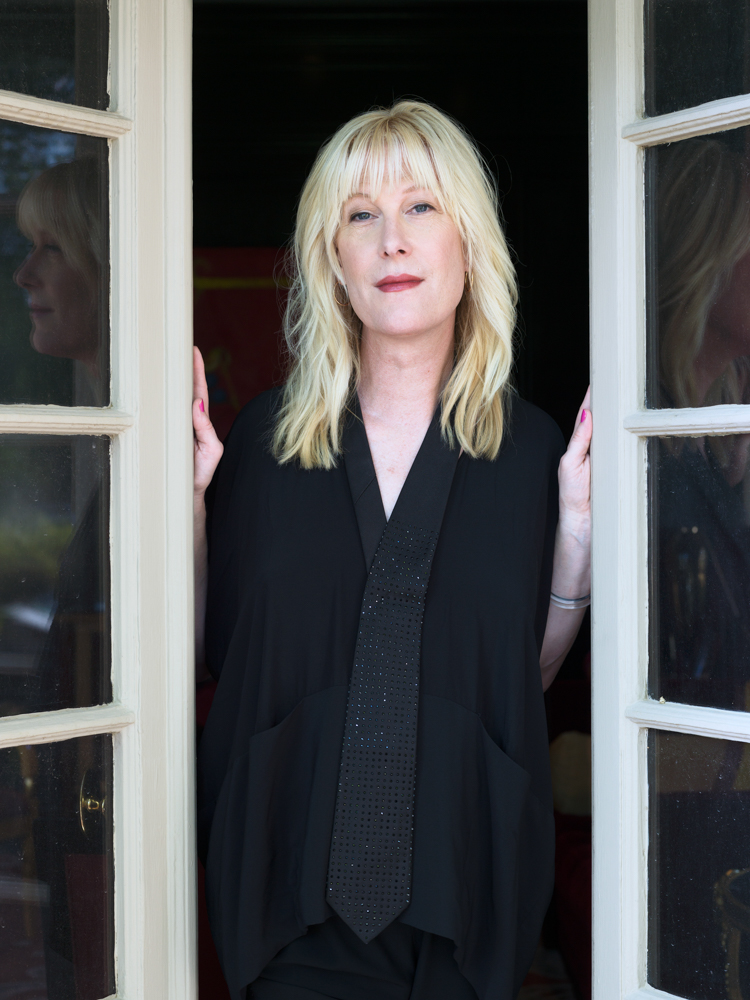
©Jess T. Dugan/Courtesy of the Catherine Edelman Gallery, Chicago, Justin Vivian, 54, New York, NY, 2017 I identify as trans non-binary. I always knew I was trans, and I always knew that I was femme. On the gender spectrum, I am much closer to female. I didn’t start taking estrogen, or as I call them, “lady vitamins,” until I was in my late forties. Part of the reason I did that was so I would have a physical and medical record of being trans. So many older LGBT people, when they become ill or if they start to deteriorate mentally and aren’t able to articulate things as well, end up involuntarily, just by the assumptions of the people who care for them, being relegated back into the closet. My fear was that I would become incapacitated in some way and then be stuck in a room full of old men and I never, ever want to be an old man. That is not my jam. – Justin Vivian
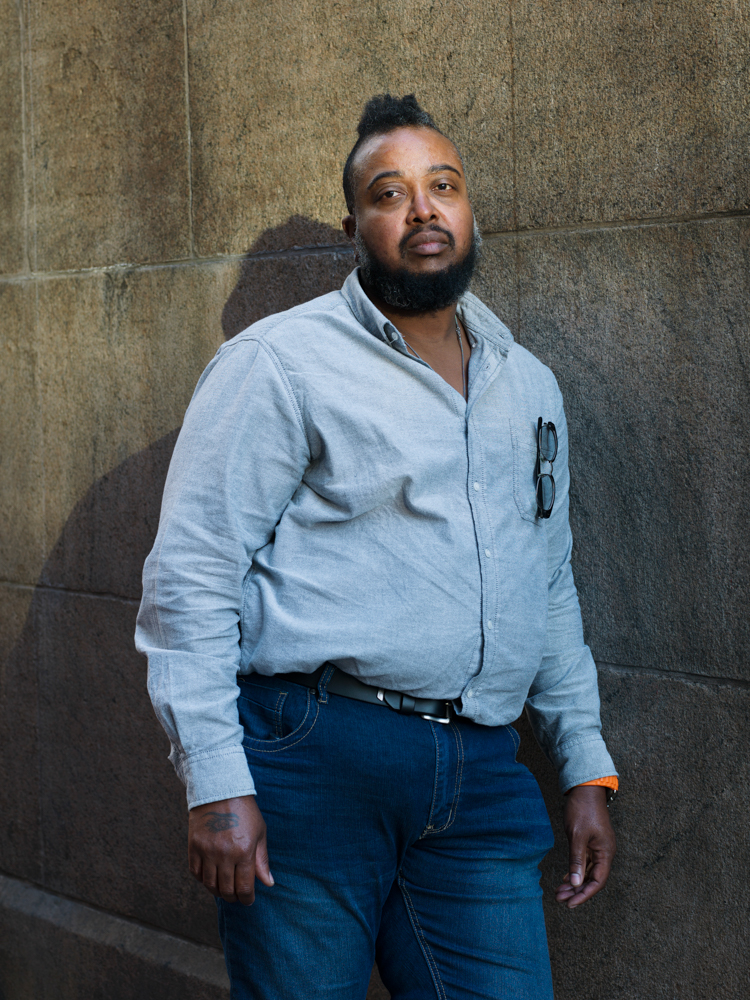
©Jess T. Dugan/Courtesy of the Catherine Edelman Gallery, Chicago, Preston, 52, East Haven, CT, 2016 I never thought that I would actually transition while my parents were alive. I thought, “Well, it’s gonna break their hearts.” That was what I was putting on myself. It was fairly easy coming out to family members. I mean, most family members were like, “Well we were just waiting for you to tell us.” My mother had made a similar comment to me, and I remember feeling angry for a little bit because I was like, “But if you knew, why didn’t you say something?” I was feeling like I went through all this heartache, all these years of trying to figure it out and people knew? Like, nobody gave me a clue. Everybody was waiting for me to tell them, you know. It was crazy. It was a crazy moment, but a good one. – Preston
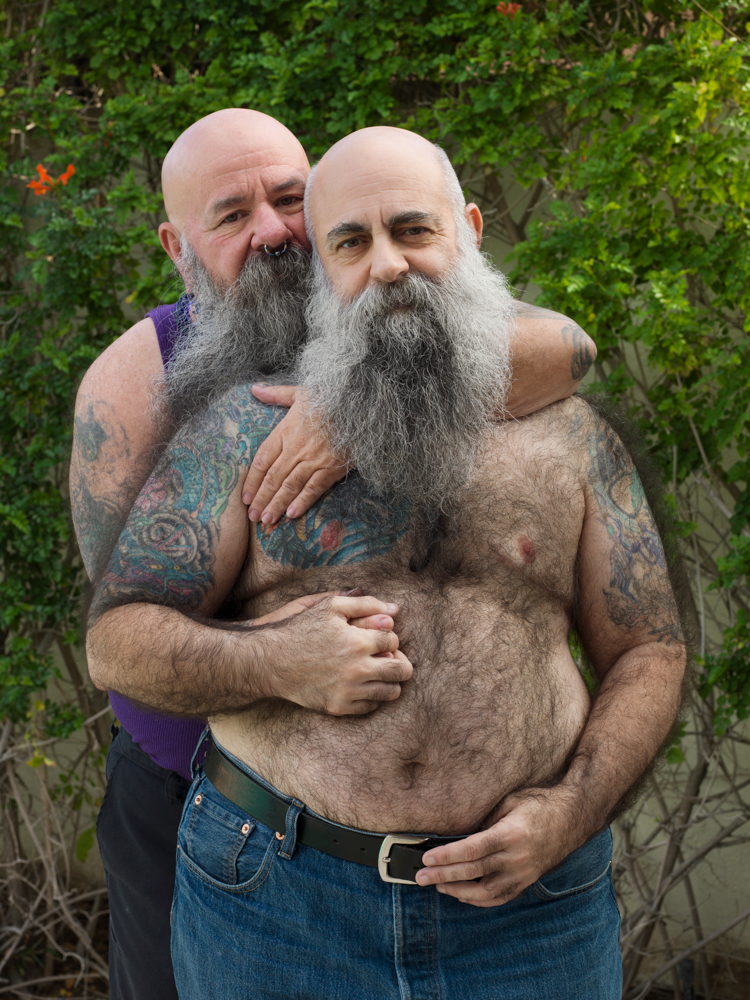
©Jess T. Dugan/Courtesy of the Catherine Edelman Gallery, Chicago, Sky, 64, and Mike, 55, Palm Springs, CA, 2017 “I think the greatest fear for me is the greatest fear for anybody who’s in a couple, that my partner will pass away. I’m also worried about the lack of nursing homes and long term care facilities geared toward our community. Right now, if something happened and I needed to be in a home, finding a place where I would be comfortable would be a challenge. I’m hopeful that in the next twenty years, something will change, preferably sooner rather than later.” – Mike
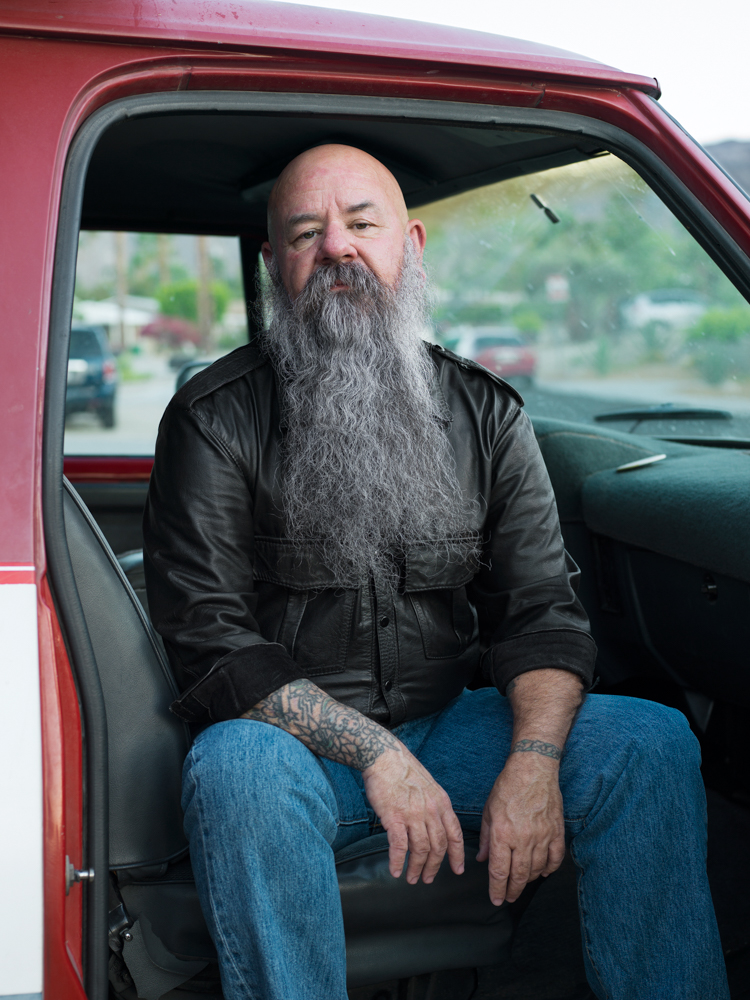
©Jess T. Dugan/Courtesy of the Catherine Edelman Gallery, Chicago, Sky, 64, Palm Springs, CA, 2017 “I live in abundance of many things: experiences, family, friends, serendipity. Living in abundance is what keeps us healthy and happy. You can’t be shackled by the minutiae of stress and expect to have a full life, and to be fearful feeds into that minutiae. Life really begins when you step out of fear.” – Sky
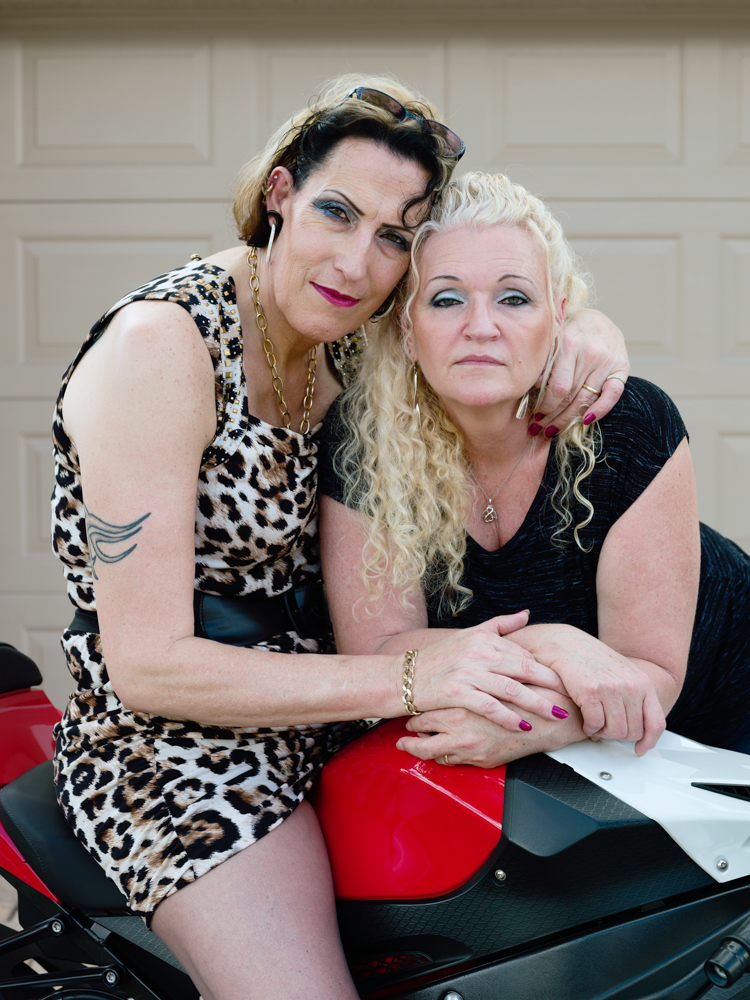
©Jess T. Dugan/Courtesy of the Catherine Edelman Gallery, Chicago, SueZie, 51, and Cheryl, 55, Valrico, FL, 2015 “When we got married, I never imagined that someday my husband would become my wife. Right from the start, SueZie confided that she identified as female on the inside, but transition never appeared to be an option. But, I never had a problem with her wearing lingerie. You know, it’s just clothes. I fell in love with the person inside, and what’s on the outside is more about what they feel comfortable with.” – Cheryl
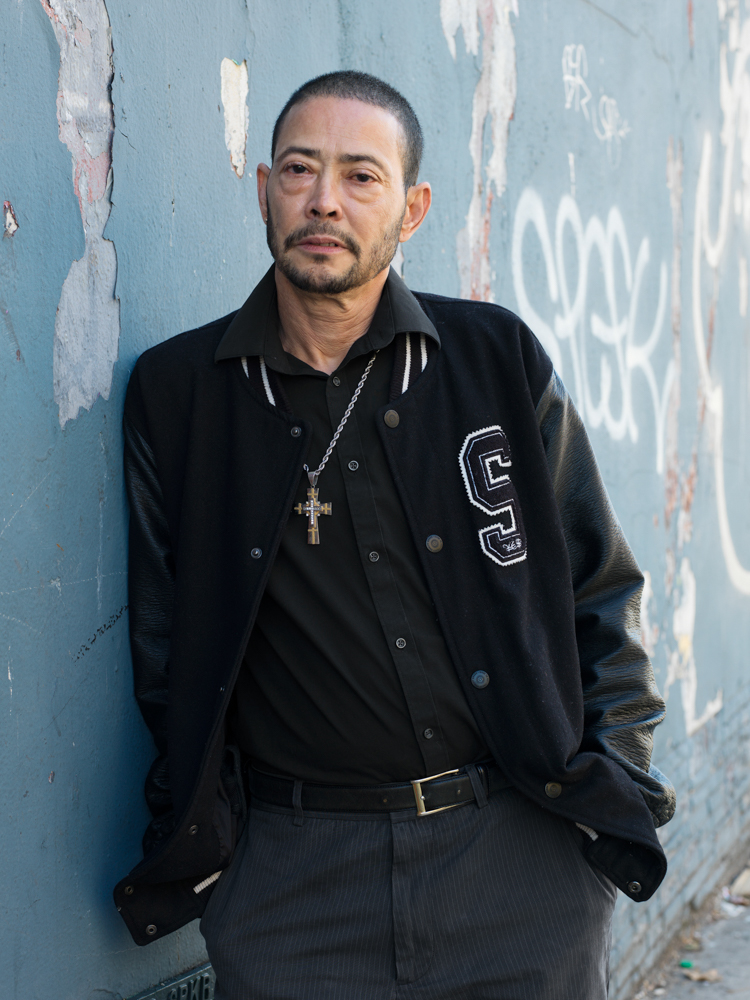
©Jess T. Dugan/Courtesy of the Catherine Edelman Gallery, Chicago, Sukie, 59, New York, NY, 2016 “I was first aware of my identity when I was like six or seven years old. I always liked girls, but I never liked wearing any girls’ clothes. At that time, they used to say “lesbian” because they had no idea about trans. But ever since I was six or seven years old I lived as a boy.” – Sukie
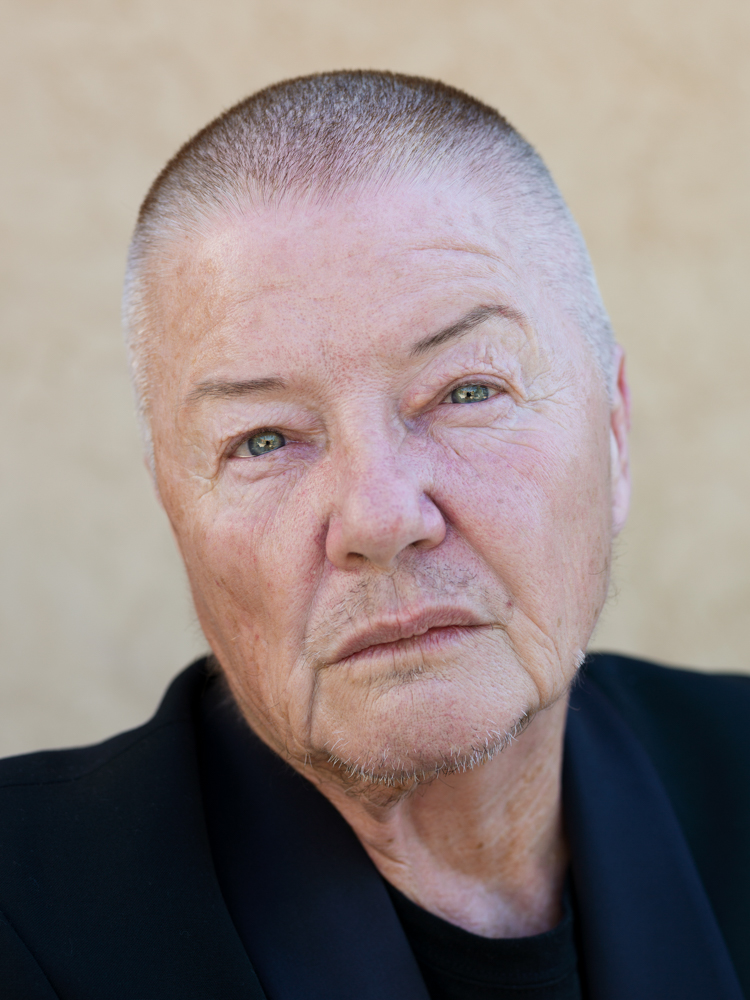
©Jess T. Dugan/Courtesy of the Catherine Edelman Gallery, Chicago, Tony, 67, San Diego, CA, 2014 I said to myself, “You know, I’m sixty-three and this has to stop. I’m going to go for it.” So at the age of sixty-three I decided that I just wasn’t gonna go on living this way, living female. I was more comfortable living male and I wanted to do the whole total package. They say that when you go through the testosterone one of the symptoms is that you’re an adult and an adolescent at the same time. I feel that I’m still going through adolescence. I just want to do everything now as a man. This is who I am and I just want to get in everything, you know, like bungee jumping, like going on a rollercoaster again! I want to take care of and appreciate what life is offering me as a man. I’m living the life that I lost. – Tony
Posts on Lenscratch may not be reproduced without the permission of the Lenscratch staff and the photographer.
Recommended
-
Earth Month Photographers on Photographers: Tyler Green in Conversation with Megan JacobsApril 15th, 2024
-
Luther Price: New Utopia and Light Fracture Presented by VSW PressApril 7th, 2024
-
Emilio Rojas: On Gloria Anzaldúa’s Borderlands: The New MestizaMarch 30th, 2024
-
Artists of Türkiye: Cansu YildiranMarch 29th, 2024
-
Artists of Türkiye: Sirkhane DarkroomMarch 26th, 2024

